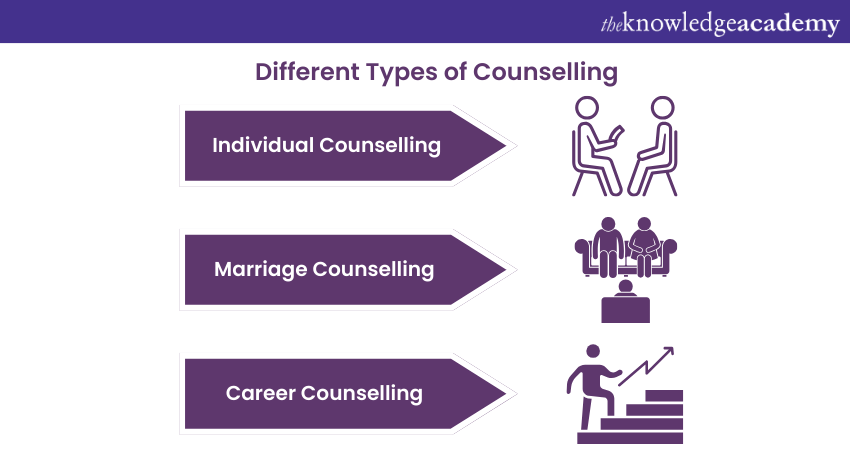A Comprehensive Overview to the Various Sorts Of Therapy and Their Impact
Therapy incorporates a selection of healing approaches, each developed to satisfy special mental health and wellness requirements. From the organized strategies of Cognitive-Behavioral Treatment to the empathetic nature of Person-Centered Therapy, these modalities supply distinctive pathways to individual growth. Family treatment and Dialectical Actions Treatment provide extra frameworks for healing, while group counseling fosters community support. Comprehending these diverse methods can brighten their extensive influence on individual well-being. What stays to be explored are the intricacies of each approach.

Comprehending Cognitive-Behavioral Therapy (CBT)
Although several restorative techniques exist, Cognitive-Behavioral Therapy (CBT) stands apart due to its structured, goal-oriented nature. This type of treatment is based upon the facility that thoughts, feelings, and behaviors are interconnected, and by changing adverse idea patterns, individuals can alter their emotional feedbacks and activities. CBT employs various techniques, such as cognitive restructuring, which aids customers identify and test distorted ideas. Behavior activation motivates involvement in enjoyable activities to combat clinical depression.
Usually, CBT is a short-term therapy, often enduring in between 12 to 20 sessions, making it easily accessible for those looking for quick outcomes. Its performance has actually been well-documented in dealing with stress and anxiety disorders, anxiety, and various other mental wellness concerns. The specialist's function is to assist customers with exercises and homework assignments, cultivating self-awareness and promoting long-term coping techniques. This sensible technique equips individuals to take control of their psychological health, eventually leading to improved life satisfaction.
Checking Out Person-Centered Therapy
Person-Centered Therapy, created by Carl Rogers, offers a different approach to Cognitive-Behavioral Treatment by highlighting the client's subjective experience. This healing design prioritizes the person's viewpoint, cultivating an environment of compassion, unconditional positive respect, and credibility. By allowing customers to explore their feelings and thoughts without judgment, therapists facilitate personal development and self-discovery.
The core tenet of Person-Centered Therapy is the belief that people have the integral capacity for self-healing and personal advancement. In this setting, the therapist serves as a supportive guide instead of a directive authority, motivating customers to organize their very own trip. This strategy is especially efficient for those grappling with problems such as reduced self-worth, anxiousness, or depression, as it encourages them to challenge and recognize their feelings. Ultimately, Person-Centered Treatment grows a solid healing alliance, fostering count on and visibility necessary for significant change.
The Duty of Household Treatment in Recovery
Household therapy works as a vital component in the healing procedure for people and their connections. This therapeutic method concentrates on enhancing interaction, resolving conflicts, and promoting much deeper links among family members. By dealing with inefficient dynamics, family therapy encourages each member to share their thoughts and feelings in a risk-free setting, promoting understanding and empathy.

The impact of family therapy extends beyond the sessions, as boosted connections can bring about enhanced emotional health for all included. Generally, family members therapy plays a vital function in healing by cultivating unity, strength, and mutual assistance amongst member of the family, inevitably guiding them towards a healthier, a lot more satisfying life with each other.
Unloading Dialectical Behavior Modification (DBT)
Building on the structure of restorative methods that enhance emotional well-being, Dialectical Behavior modification (DBT) provides an organized framework for individuals having problem with intense feelings and behavior challenges. Developed by Marsha Linehan, DBT incorporates cognitive-behavioral strategies with mindfulness techniques, aiming to help customers manage overwhelming sensations and enhance interpersonal efficiency.
The treatment is specifically helpful for those identified with Borderline Personality Disorder however is additionally appropriate to a variety of various other mental health concerns. relationship therapy. DBT includes private treatment sessions and abilities training groups, concentrating on four crucial skill collections: mindfulness, distress website resistance, feeling policy, and social performance
The Benefits of Group Therapy Procedure
While specific therapy offers valuable insights, team therapy sessions provide distinct advantages that can significantly boost the restorative experience. One vital benefit is the sense of neighborhood that emerges amongst participants. People typically locate convenience in sharing their experiences with others facing comparable difficulties, promoting a supportive setting that lowers sensations of isolation.
Group sessions motivate varied viewpoints, permitting individuals to find out from each other's coping methods and insights. This collective wisdom can cause enhanced analytical capacities and a wider understanding of individual concerns.
Additionally, team therapy usually promotes accountability, as members inspire each other to pursue their objectives and comply with their dedications. Lastly, the cost-effectiveness of team therapy makes it an obtainable option for lots of individuals seeking support. Overall, the joint nature of group therapy sessions can significantly enrich the therapeutic journey.
Frequently Asked Inquiries
What Qualifications Do Therapists Need to Practice Therapy?
Specialists generally call for an appropriate level in psychology or counseling, along with supervised clinical experience. In addition, they have to acquire appropriate licensure or qualification to exercise lawfully, making certain adherence to specialist requirements and ethical guidelines.
Exactly how Do I Pick the Right Kind Of Treatment for Me?
Selecting the ideal type of therapy involves assessing individual requirements, discovering different techniques, taking into consideration specialist specializeds, and seeking suggestions. Recognizing private objectives and choices can greatly boost the efficiency and contentment of the restorative experience.

Are Online Therapy Procedure as Effective as In-Person Ones?
The effectiveness of on-line therapy sessions contrasted to in-person ones usually depends on private preferences and conditions. Research study suggests that both approaches can yield positive results, though some might locate better convenience in face-to-face communications.
For How Long Does Counseling Normally Last?

What Should I Expect Throughout My Very First Therapy Session?
During the initial therapy session, clients can expect an intro, conversation of their problems, establishment of objectives, and a review of the counseling process - virtual therapy. This first meeting intends to construct rapport and warranty comfort